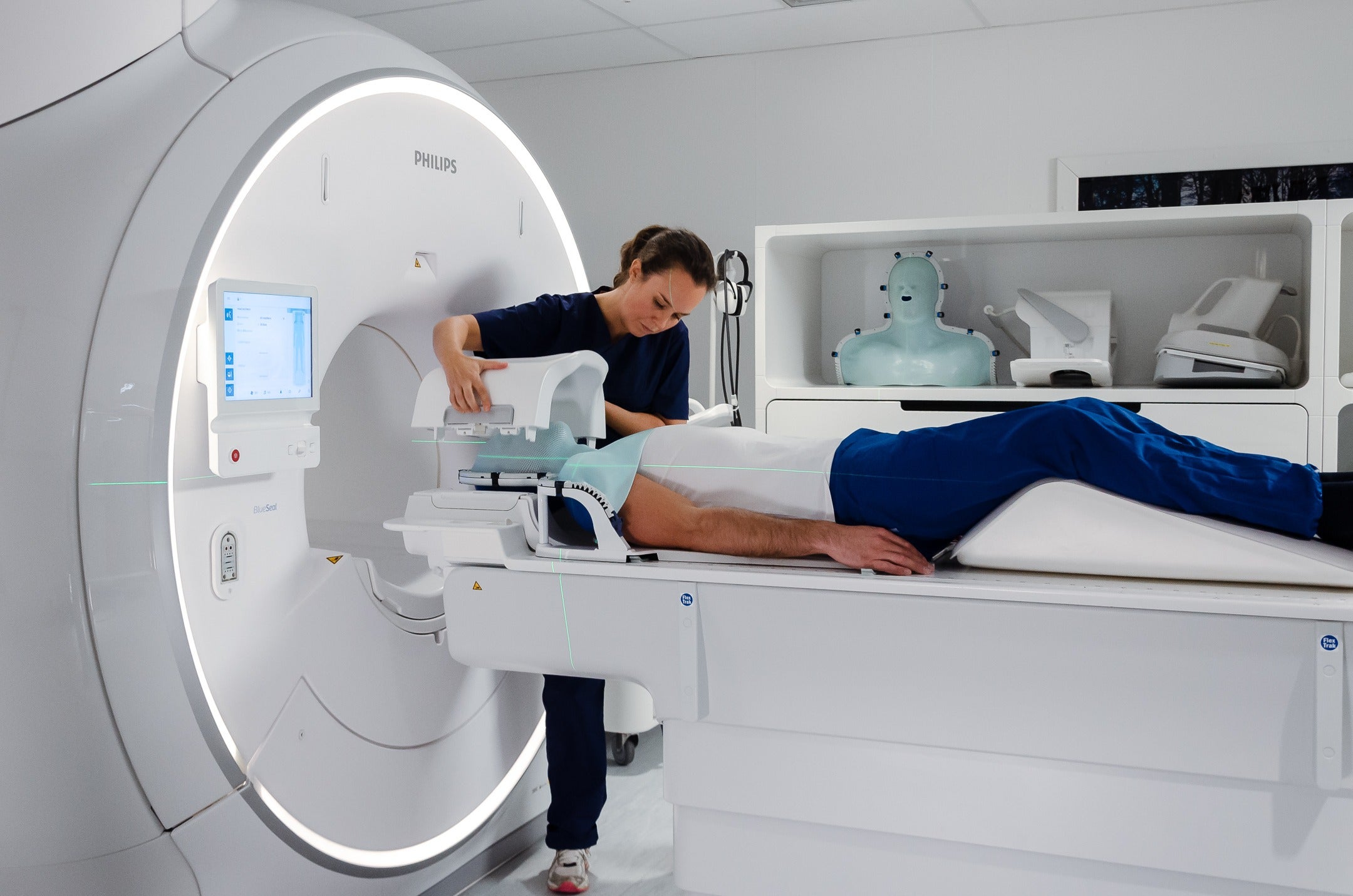
Philips unveils advances in AI-powered MR radiotherapy imaging and simulation
The company announced the FDA approval for its AI-enabled MR for Calculating Attenuation (MRCAT) Head and Neck radiotherapy application, and the compatibility of its MR Head Neck Coil with MacroMedics’ positioning mask system
Global health technology company Royal Philips has announced two new updates in its Magnetic Resonance (MR) workflows related to head and neck cancer radiotherapy imaging and simulation.
The company has secured the US Food and Drug Administration (FDA) 510(k) approval for its MRCAT head and neck radiotherapy application.
MRCAT (MR for Calculating Attenuation) is an AI-powered application that uses MR as a primary imaging modality for radiotherapy planning in the treatment of soft tissue tumours.
The application, which can be used for tumours in the head and neck, along with the brain, pelvis, and prostate, is currently being commercialised in the US.
Philips chief medical officer oncology solutions Ilya Gipp said: “The superior soft tissue imaging of MR together with advances in the integration and orchestration of data, including the use of artificial intelligence, promise greater clarity and less subjectivity in planning radiotherapy for head and neck cancer.
“Our collaboration with MacroMedics to develop a patient-friendly mask system compatible with our high-resolution dStream imaging coils highlights Philips’ commitment to providing the precision tools needed for the localization and characterization of difficult-to-treat tumours.”
Philips also announced that its MR Head Neck Coil is now compatible with MacroMedics’ latest Double Shell Positioning System (DSPS) Prominent positioning system.
The compatibility is a result of the company’s recent development partnership with MacroMedics, a Netherlands-based company specialising in patient positioning.
The integration combines the superior imaging capabilities and high-resolution image quality of Philips’ head and neck coil with the comfort, accuracy, and stability of MacroMedics’ mask.
Philips said that the developments will help improve the accuracy of radiotherapy planning and simulation to achieve better patient outcomes and enhance patient comfort.
The company claimed that its radiation oncology portfolio will equip oncologists with accurate image guidance, integrated workflows, and the ability to deliver precise, adaptive, personalised treatment.
Its products and services are enhanced through strategic clinical and technology partnerships, vendor-neutral device integration, and advanced AI algorithms, said the company.
University Medical Center Utrecht MRI for radiotherapy associate professor Marielle Philippens said: “With this innovative mask that fits into Philips’ head coil, we expect to acquire head and neck images for radiotherapy planning with diagnostic image quality and improved patient comfort.”






